Black Sabbath - The Eternal Idol (1987)
- intothewellsabyss
- Nov 16, 2022
- 13 min read
FROM THE CRYPTS - CELEBRATING PAST ALBUM RELEASES in the HISTORY of HARD ROCK & HEAVY METAL…
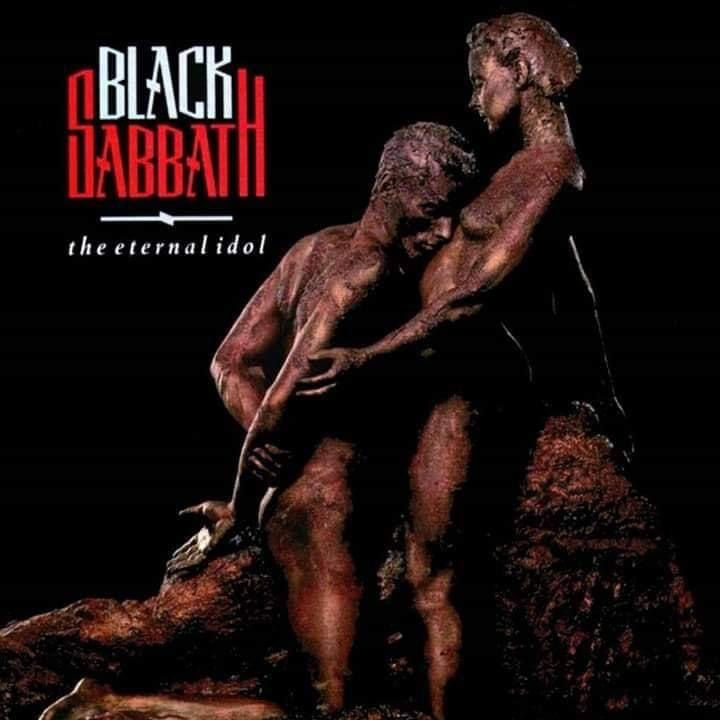
On November 16, 1987, Black Sabbath released their thirteenth full-length studio album The Eternal Idol in the UK via Vertigo Records (December 8, 1987 via Warner Bros. in the US).
It is the first Black Sabbath album to feature vocalist Tony Martin. It spent six weeks on the Billboard 200 chart, peaking at 168. It was also the last full album of new material by Black Sabbath to be released by Warner Bros. Records (in North America), and the final album through their original label Vertigo Records until the release of 13 in 2013.
The album cover features two models in bronze paint re-enacting Auguste Rodin's 1889 sculpture The Eternal Idol. Due to the paint's toxicity, the models were hospitalized after the shoot. A photograph of the original sculpture was intended as the cover art, but permission could not be secured.
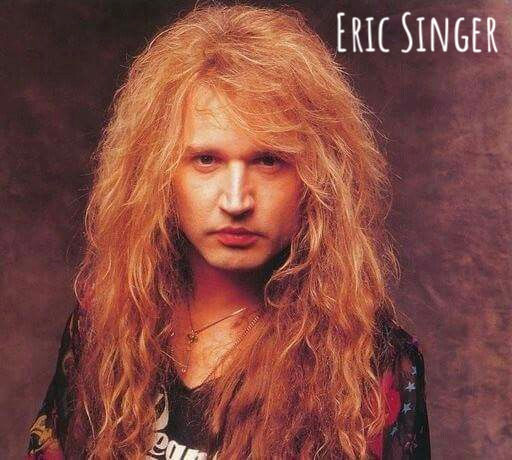
The sleeve credits Dave Spitz as bass player, but all bass parts were by Bob Daisley. Eric Singer played the drums; the percussion credit for Bev Bevan relates to a few cymbal overdubs on Scarlet Pimpernel.
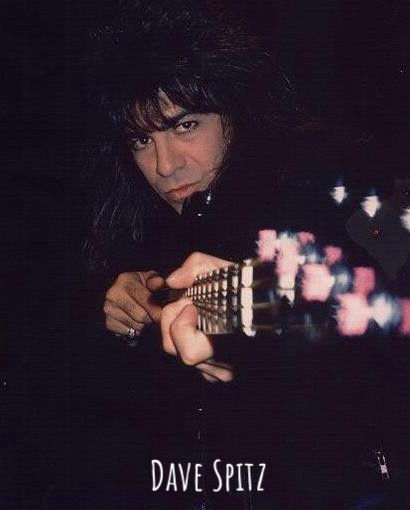
Background:
Black Sabbath began work on new material in October 1986 at Air Studios in Montserrat with producer Jeff Glixman. The recording was fraught with problems from the beginning, as Glixman left after the initial sessions to be replaced by producer Vic Coppersmith-Heaven. Bassist Dave Spitz was replaced by former Rainbow and Ozzy Osbourne bassist Bob Daisley (Spitz. Daisley re-recorded all of the bass tracks, and wrote the album's lyrics, but before the album was complete, he left to join Gary Moore's backing band, taking drummer Eric Singer with him. After problems with second producer Coppersmith-Heaven, the band returned to Morgan Studios in England in January 1987 to work with new producer Chris Tsangarides.
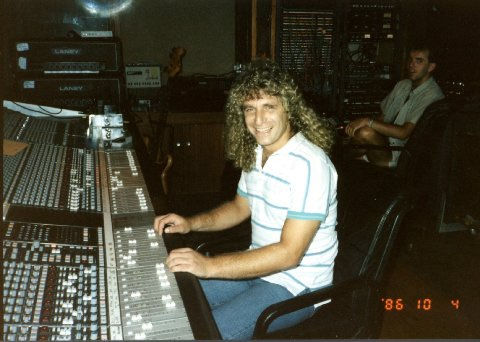
(Jeff Glixman during the recording of Eternal Idol. This photo was taken during one of the days that Bob Daisley was laying down bass tracks.)
While working in the United Kingdom, new vocalist Ray Gillen abruptly left Black Sabbath to form Blue Murder with guitarist John Sykes (ex-Tygers Of Pan Tang, Thin Lizzy, Whitesnake). According to Bob, Dave, and Geoff, Gillen had struggled with recording the vocal parts, and management wasn't paying him. Gillen later joined the band Badlands.
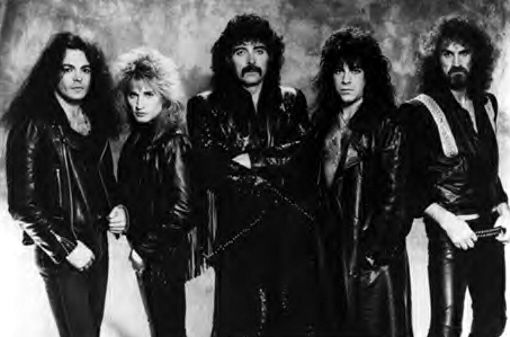
(Black Sabbath; Ray Gillen, Eric Singer, Tony Iommi, Dave Spitz & Geoff Nicholls)
The band enlisted vocalist Tony Martin to re-record Gillen's tracks under the guidance of Chris Tsangarides at Battery Studios shortly before production ended, along with former Electric Light Orchestra drummer Bev Bevan to complete a few percussion overdubs. Most tracks were written by Tony Iommi and Bob Daisley (the vinyl version states that all songs were written by Iommi) although some lyrics were modified by Geoff Nicholls. Martin said he "only sang on, and had no part in writing The Eternal Idol”, but nonetheless "thought it was one of the better albums of the band."

(Tony Martin rehearsal tape)
Drummer Bevan and original Sabbath bassist Geezer Butler were hired for a 1987 tour in support of the album, which would have reunited three-quarters of the Born Again tour line-up (with Martin singing rather than Ian Gillan). Before the release of the new album Black Sabbath accepted an offer to play six shows at Sun City, South Africa during the apartheid era. Butler backed out on learning that Sabbath had booked the dates in South Africa. The band drew criticism from activists and artists involved with Artists United Against Apartheid, who had been boycotting South Africa since 1985. Drummer Bev Bevan refused to play the shows, and was replaced by Terry Chimes, formerly of The Clash, who appears in the music video for The Shining. "The bass player in the Shining video," recalled Martin, was some guy that we dragged off the street. I can't remember his name but he looked the part. He said that he was a guitarist. I remember he was always talking about how he was a Red Indian, thus all the turquoise he wore! We never saw him again."

(Black Sabbath, Sun City, South Africa)
After nearly a year in production, The Eternal Idol was released, being subsequently ignored by contemporary reviewers. On-line internet era reviews were mixed. AllMusic said that "Martin's powerful voice added new fire" to the band, and the album contained "some of Iommi's heaviest riffs in years." Blender gave the album two stars, claiming the album was "Black Sabbath in name only". The album would stall at No. 66 in the United Kingdom, while peaking at 168 in the U.S. The band toured in support of Eternal Idol in Germany, Italy and for the first time, Greece. In part due to a backlash from promoters over the South Africa incident, other European shows were cancelled. Bassist Dave Spitz left the band shortly before the tour, and was replaced by Jo Burt, formerly of Virginia Wolf, although Nicholls played bass for a few shows before Jo Burt was hired.
Following the poor commercial performance of The Eternal Idol, Black Sabbath were dropped by both Vertigo Records and Warner Bros. Records, and signed with I.R.S. Records. The band took time off in 1988, returning in August to begin work on their next album. As a result of the recording troubles with Eternal Idol, Tony Iommi opted to produce the band's next album himself. "It was a completely new start", Iommi said;
"I had to rethink the whole thing, and decided that we needed to build up some credibility again". Iommi enlisted former Rainbow drummer Cozy Powell, long-time keyboardist Nicholls and session bassist Laurence Cottle, and rented a "very cheap studio in England".
"I'd like to have seen some of the stuff off The Eternal Idol be a bit more credited," Iommi reflected to Sabbath fanzine Southern Cross, "because I think there's some good tracks on that album – Ancient Warrior…"
A three-minute and fifteen second studio outtake titled Some Kind of Woman, written by Tony Martin shortly after joining the band, appeared as a b-side of The Shining single. An early version of Black Moon – a song destined for Headless Cross – was also released as a b-side of the The Shining Eternal Idol singles.
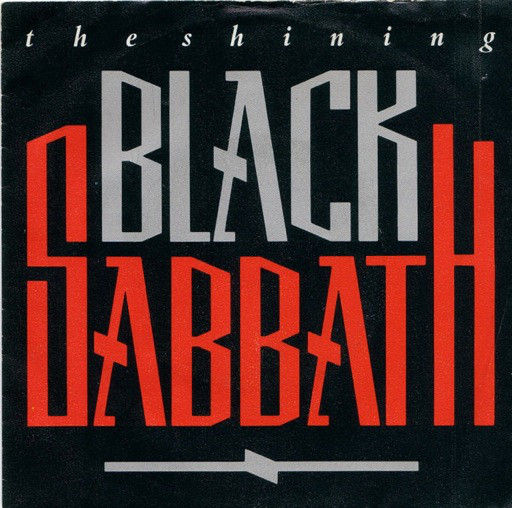
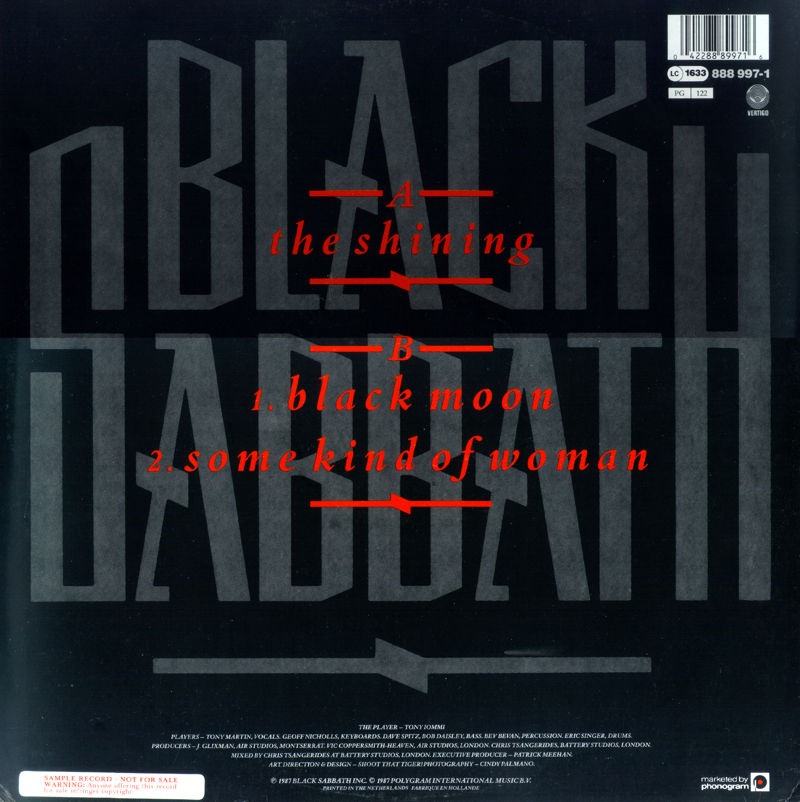
The album was re-released on November 1, 2010 in Europe as a two-disc expanded set. Bonus content includes the aforementioned b-sides Some Kind of Woman and Black Moon on disc 1. Disc 2 contains the session for the album recorded with Ray Gillen on vocals.

Side Note:
The song Nightmare was initially written for the third Nightmare on Elm Street movie.
In an interview with That Metal Voice, Bob Daisley talked about working on The Eternal Idol, including some words about Ray Gillen’s involvement and his departure from Black Sabbath…
When asked about the making of Eternal Idol, Bob Daisley said;
"I have never really worked with Tony before this album. Tony is great, I love his playing, his writing, his sound. Everything that he plays is a classic riff, they just pour out of him and they are just not throw away riffs, they are all really, really good valid riffs. It was great for me. I enjoyed it, it was 1986. Eric Singer was on drums and Eric and I got along very well. Ray Gillen was the vocalist (at first). We all got on fine."
When asked if he wrote the lyrics with Ray Gillen at the time, Daisley responded;
"Ray had some scratch lyrics written and a couple of the others put bits in. A lot of them (lyrics) weren't that great. They asked me to write the lyrics for the songs, which I did. There are some lines I left in there of Ray's."
When asked about the exit of Ray Gillen, Daisley said;
"I don't know the full circumstances cause I wasn't with the band at that point but when Ray left I don't know if there was a fall out or what happened between him and management or Tony or whatever it was. But his vocals had already been recorded but they didn't use them because they knew that they were replacing him with Tony Martin. So they got Tony Martin to re-do everything and released it that way. It went for years and years without anyone hearing the Ray Gillen version. They were Ray Gillen's melodies and phrasing and that is what came from Ray's heart. Tony Martin did an admirable great job of replacing what Ray had done. The initial thing came from Ray. When you hear Ray's version, it's the version."
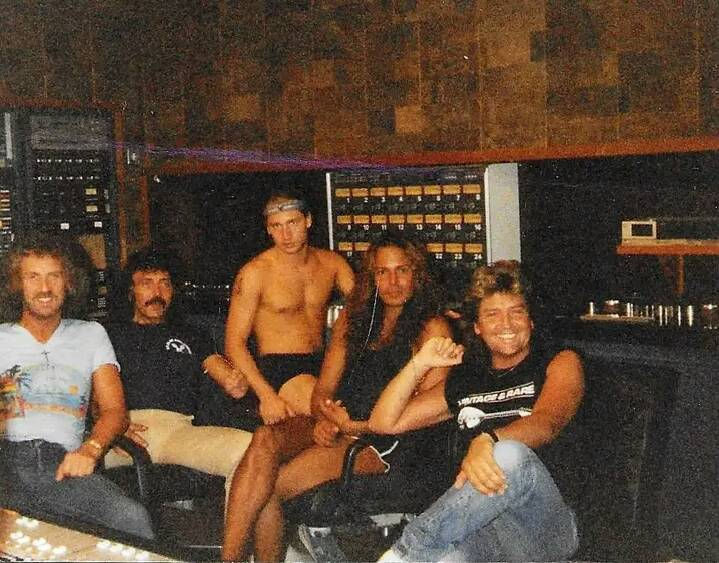
(Studio photo featuring; Geoff Nicholls, Tony Iommi, Eric Singer, Ray Gillen, and Bob Daisley)
Timeline of Events:
In July/August of 1986, the band is doing demos for a new album – which would eventually become The Eternal Idol. The producer of the album had some problems with Dave Spitz where he would either not turn up, or would always be on the phone with his girlfriend, basically it wasn’t working out, so he was asked to “rest” (or took the time off himself – there isn’t a solid answer on this). Either way, he wasn’t officially fired as such. A short while after that (September 21st), Bob Daisley was asked by the album’s producer, Jeff Glixman if he’d be interested in working on the project, and he accepted. Work began in earnest on the recording of the album; all the basic tracks were laid down by this band during the month of September. Bob was actually only around for two weeks or so in the recording studio doing his bass tracks. He left for Air Studios in Monserrat (where the recording was done) on September 30th, and took off to go back home on October 11th. His total time with the band was about two months, as they worked on lyrics with Ray after the recording of the songs, but he wasn’t in the band all that long, really according to him. Bob was asked to join Black Sabbath formally during this period (as well as afterwards) after laying down the tracks for the album, but was committed to the Gary Moore band, and couldn’t join Sabbath. There’s two known versions of the album floating around in collector’s circles with this lineup. One was more advanced than the other (the earlier one doesn’t have all guitar solos on it). After speaking to Bob Daisley confirms that the version of Eternal Idol that is floating around with Ray Gillen on vocals is from this version of the band.
(Nov 86-Jan 87) After Bob left for good around November, there was no formal bassist in the band (even though Dave Spitz was formally not out either). In fact, most of the next several months would have no bassist, as Bob had laid down the tracks already, and then left. This period was most likely studio time as the band that existed at this point continued to work on the album.
(Jan-Mar 87) Eric Singer was no longer part of the band as of January 1987. He said that the Sabbath situation was just kind of falling apart, so he left. He took the time and auditioned for Gary Moore’s band and got that gig, playing with Gary Moore for awhile (later on, he formed Badlands with Ray Gillen (soon to be late of Black Sabbath) after having met Jake E. Lee). In January, Sabbath goes to a different set of studios and does further work on the album, but without a formal drummer or bassist. As Eric had laid down his tracks already, the band really didn’t need a drummer as such, research says that during this time Sabbath didn’t actually have a drummer, either.
(Mar-Jul 87) Around March of 1987, Ray Gillen leaves the band (according to an interview), because he felt Sabbath wasn’t going anywhere, as well as his feeling that the band didn’t really have any future. It was a foolish opinion, but given the band had no formal bassist or drummer would explain that feeling. Of course, with an album not completed, and the lead vocalist gone, the vocals had to be redone, hence the appearance of Tony Martin. Actually, Tony Martin was considered for the position in 1986, but he was already in a band at the time (The Misha Calvin Band). As production stretched on into mid 1987, Sabbath was warming up to play some gigs in July, most of which were the Sun City gigs below. As such, they needed someone to play drums, so Tony’s friend Bev Bevan (who previously was in Sabbath during 83/84 on the Born Again tour) was brought in to play drums for Sabbath again, although when precisely he joined up again is unknown.
(July 87) In addition to Bev Bevan stepping in to play drums, the band needed a bassist if they were to play live again, so Dave Spitz returned to the stage to handle those duties. On July 20th, 1987, Sabbath played a music festival in Greece, which as it turns out has been their only appearance in Greece in their entire history (until the Ozzfest 2005 tour).
(Jul-Aug 87) Almost immediately after the festival in Greece, Sabbath played Sun City in South Africa. This was before Apartheid fell there, and as stated, Sabbath took a lot of crap about it in the press. Tony Iommi himself said this in a January 1988 interview about playing Sun City.. “Hopefully, it hasn’t done us any lasting damage. But in our defense I’ve got to say that this was discussed with Patrick Meehan’s lawyers who convinced us that Sun City wasn’t actually in South Africa…and we were foolish to believe them!” Bev Bevan objected to playing Sun City for political reasons, so another member change was needed. Terry Chimes (formerly of the Clash) stepped in to play drums here, and shortly afterwards.
After the Sun City gigs, final production on the Eternal Idol album was completed, and the album was (finally) released in November of 1987. Dave Spitz left for good during this period. When Dave actually departed is a bit of a mystery, but a good guess is that he was gone before the end of October (possibly earlier, as the Eternal Idol Tour rehearsals likely started sometime in October).
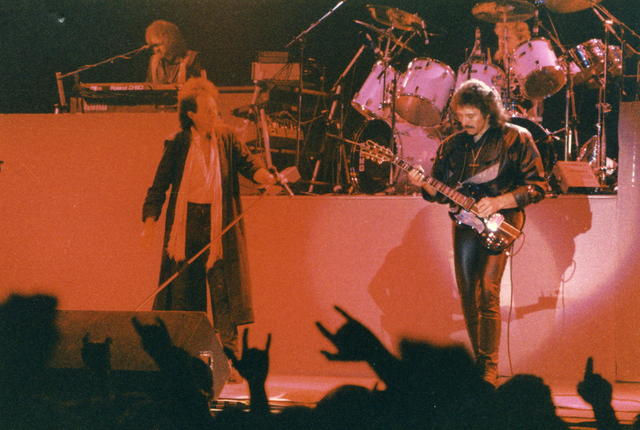
(Black Sabbath, Sun City, South Africa)
So who did what on the final released product?:
Guitar: Obviously, Tony Iommi played all the guitars.
Keyboards: That too was also all handled by Geoff Nicholls, who according to stuff I’ve read/heard over the years had more to do with the actual music and lyrics than he was properly credited for.
Vocals: The final released product was handled by Tony Martin. He re-recorded all of Ray Gillen’s bits after Gillen left. However, there’s one short piece of Ray Gillen on the final released product; a story that has been told several times before. In the track Nightmare, there’s some laughing that is the Ray Gillen original. Apparently Tony Martin said it worked so well, the band left it well enough alone. Here’s a 20 second sample of the Gillen laughing.
Tony Martin regarding his work and introduction to the album;
"It was a very involved, new, deep, position i found myself in and was completely unprepared for it!!! I DID do the job though and i’m pleased with what it became. It was a little weird following EXACT lines and lyrics already laid in place because my voice was forced to work in some strange keys, but there wasn’t time to change any of it anyway, i only had a week to record the whole thing.!!!"
Bass: The credits list both Dave Spitz & Bob Daisley as bassists on the album. Everything I’ve read however says that Spitz didn’t actually play anything on the released product. Bob Daisley has explained in an interview why Dave Spitz was credited on the Eternal Idol album, when he hadn’t actually played anything.
Bob Daisley said,
“…the question as to why Dave Spitz is credited on the album in the bass credits is answered by the fact that I wouldn’t join the band and Spitz stayed, so to give some sort of continuity to the album and live performances, his name appears on the record. It’s the same reason that Michael Inez had his name on the Ozzy album No More Tears. I played on it but wasn’t in the band and not going on the road to promote it. Michael was already in the band when I got the call from Ozzy to play on that album and I played on the whole thing, like with Eternal Idol and because Michael was still in the band and going on the road, he got a credit as well. So there it is…”

Drums: There are two credited drummers on the album, Bev Bevan & Eric Singer. While Bev does have a credit on the final Eternal Idol album as “percussion”, what (if anything) he played on the final album isn’t known. Eric Singer was asked at a KISS convention about the Eternal Idol album, and he said that Bev doesn’t actually play anything on the album, and that he’s the only drummer. There was also something said around the time of the release of this album that Bev was brought in only to “clean up” a few things on the final recording after Eric had already left, although that contradicts what Eric said about Bev not being on the album. Geoff Nicholls had stated that Bev’s contribution to the album were some cymbal rolls in the song Scarlet Pimpernel. For that he got a credit of “percussion”. If you listen to Pimpernel, and turn the volume up, you can hear them. It’s admittedly a very light sound, but it is on there.
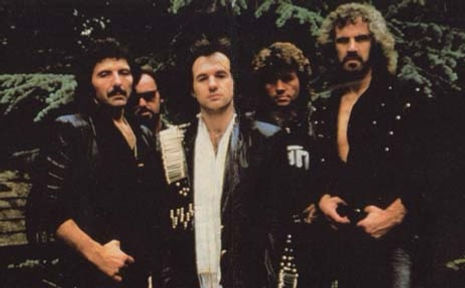
Critical Reception:
In his review for AllMusic, Eduardo Rivadavia wrote;
“After years of playing a dispiriting game of musical chairs with various lead singers during the early '80s, Black Sabbath guitarist Tony Iommi finally stumbled upon a dependable frontman when he admitted relative unknown Tony Martin into the fold, thereby initiating the original heavy metal band's long awaited return to respectability -- if not chart-topping success.
Martin joined the oft-interrupted sessions for what would become 1987's The Eternal Idol album already in progress, stepping in for an unreliable Ray Gillen when the latter moved on to Jake E. Lee's Badlands, and helping Iommi rescue an astonishingly solid long-player from the jaws of complete and utter chaos. As it turned out, Martin's powerful, muscular voice -- though bearing more than a passing resemblance to former singer Ronnie James Dio -- was ultimately the perfect foil for full-bodied Heavy Metal anthems like Hard Life to Love, Glory Ride, and Born to Lose, which were built upon some of Iommi's heaviest, most undeniable riffs of the decade.
A hodgepodge of temporary backing musicians and short-lived producers somehow manage to fill in the gaps, and make The Eternal Idol sound like a very cohesive LP. If anything, however, it's the ever-reliable Geoff Nicholls who embodies a third pillar of stability, by adding impeccable supporting keyboards throughout -- most notably to Ancient Warrior and the fantastically gloomy title track.
And above all else, The Eternal Idol contains a bona fide Heavy Metal classic for the ages in its monumental opener, The Shining, which Iommi had been kicking around in demo form since 1984, and which, in its final glorious form, is rightfully considered one of Black Sabbath's greatest songs bar none, regardless of singer, era, or album sales. In tandem with the consistently stellar songwriting all around, there's no denying The Eternal Idol's standing as quite possibly Black Sabbath's most underrated opus, and arguably their best without either Ozzy Osbourne or Ronnie Dio at the microphone.
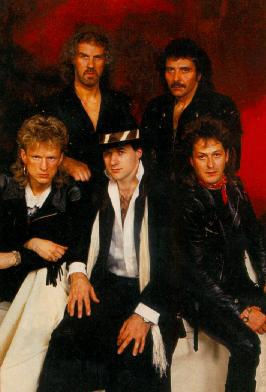
Note: The reviews shared here are for historical reference. The views and opinions expressed within are not always supported (in full or in part) by Into the Wells. — E.N. Wells

Follow Us:
Subscribe to Into the Wells at: https://intothewellsabyss.wixsite.com/intothewells
Follow us on Facebook: https://www.facebook.com/Intothewells.abyss
Follow us on Instagram: https://www.instagram.com/into_the_wells
You can also follow us on Twitter: https://twitter.com/into_the_wells?s=21&t=ISh9VpVYRrOy70MsZZVXTQ







Comments